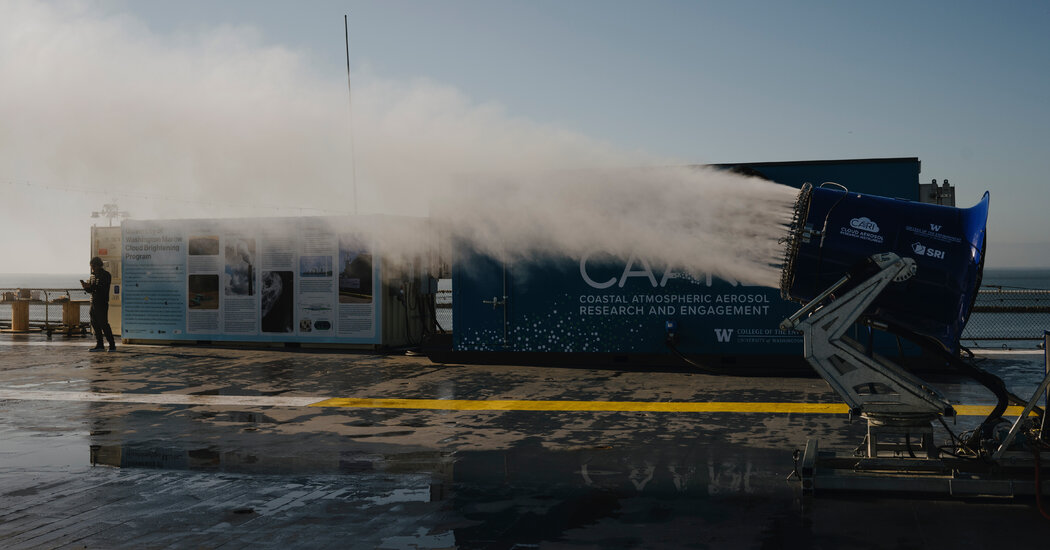Researchers had been testing a sprayer that could one day be used to push a salty mist skyward, cooling the Earth. Officials stopped the work, citing health questions.
Officials in Alameda, Calif., have told scientists to stop testing a device that might one day be used to artificially cool the planet by making clouds brighter, reflecting planet-warming sunlight back into space.
The experiment, conducted by researchers from the University of Washington, involved spraying tiny sea-salt particles across the flight deck of a decommissioned aircraft carrier, the U.S.S. Hornet, docked in Alameda in San Francisco Bay. Versions of that device could eventually be used to spray the material skyward, making clouds brighter and fighting global warming by bouncing away more sunlight.
The experiment, which began on April 2, marked the first time in the United States that researchers had tested such a device outdoors. But on May 4, the City of Alameda wrote on its Facebook page that it had instructed the researchers to stop, citing possible health concerns.
“City staff are working with team of biological and hazardous materials consultants to independently evaluate the health and environmental safety of this particular experiment,” officials wrote. “The City is evaluating the chemical compounds in the spray to determine if they are a hazard either inhaled in aerosol form by humans and animals, or landing on the ground or in the bay.”
The city’s statement also said, “At this time, there is no indication that the spray from the previous experiments presented a threat to human health or the environment.”
